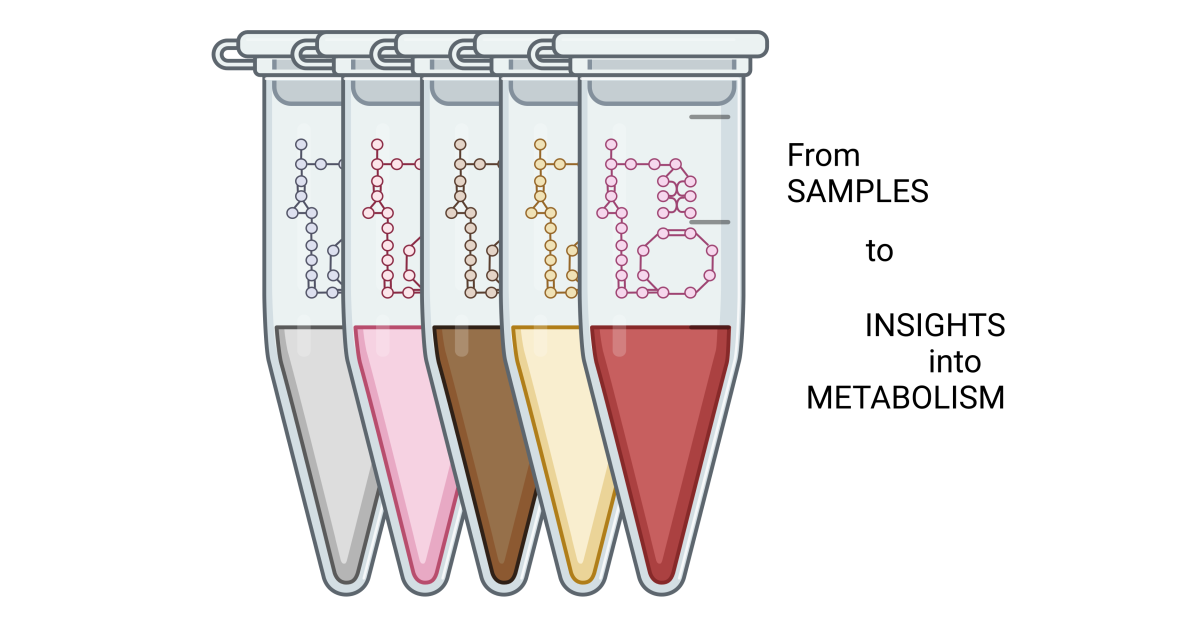From Samples to Insights into Metabolism for Precision Medicine
A special issue of Metabolites (ISSN 2218-1989). This special issue belongs to the section "Advances in Metabolomics".
Deadline for manuscript submissions: closed (15 September 2023) | Viewed by 2969

Special Issue Editors
Interests: precision medicine; clinical applications; metabolomics; volatilomics; MS; NMR; QA/QC; ion mobility spectrometry; MEMS; data learning; meta-analysis; ethics; ML; scientific dissemination
Interests: precision medicine; patient phenotyping; metabolomics; lipidomics; data mining; clinical biomarker development; clinical trials
Special Issue Information
Dear Colleagues,
Large-scale metabolomics studies are gaining interest, as is the need to develop metabolome-wide association studies (MWAS). Large-scale initiatives such as NIH “All of Us” and extensive clinical studies will provide the metabolomics community with more reliable biomarkers of specific diseases. However, the path to achieving MWAS as a precision medicine tool for clinics needs to be paved, following the FAIR principles.
We will cover all steps to achieve reliable and cost-effective MWAS for precision medicine with the current Special Issue. Specifically:
1) Samples and Experimentally related issues: Biofluid collection and preservation, including POC devices; the need for fast, robust, and reliable high throughput methods; strategies for removing multiple batch variations (internal standards, QC’s, statistically, RUV algorithms); raw spectra processing issues (larger files, different formats).
2) Meta-data collection: Informed consent and data protection (such as HIPPA) compliances; public and digital health collaborations (personalized tools); minimum of anthropometrical, prescription and health status data needed.
3) Progression of Profiling to Identification: Metabolites identification to support iterative downstream investigations; appropriate levels of compound identification (MSI); software tools for processing and identification; the need to report databases used (in silico, public or in-house libraries).
4) Insights of the Metabolism: Statistic (univariate vs. multivariate) and normalization in MWAS; pathway analysis validity for biological fluids (as opposed to cells or tissue); data reporting for further re-analysis with meta-analysis; repositories needed for MWAS; reliability of MWAS results.
Dr. Raquel Cumeras
Dr. Jung H. Suh
Prof. Dr. Stephen Barnes
Guest Editors
Manuscript Submission Information
Manuscripts should be submitted online at www.mdpi.com by registering and logging in to this website. Once you are registered, click here to go to the submission form. Manuscripts can be submitted until the deadline. All submissions that pass pre-check are peer-reviewed. Accepted papers will be published continuously in the journal (as soon as accepted) and will be listed together on the special issue website. Research articles, review articles as well as short communications are invited. For planned papers, a title and short abstract (about 100 words) can be sent to the Editorial Office for announcement on this website.
Submitted manuscripts should not have been published previously, nor be under consideration for publication elsewhere (except conference proceedings papers). All manuscripts are thoroughly refereed through a single-blind peer-review process. A guide for authors and other relevant information for submission of manuscripts is available on the Instructions for Authors page. Metabolites is an international peer-reviewed open access monthly journal published by MDPI.
Please visit the Instructions for Authors page before submitting a manuscript. The Article Processing Charge (APC) for publication in this open access journal is 2700 CHF (Swiss Francs). Submitted papers should be well formatted and use good English. Authors may use MDPI's English editing service prior to publication or during author revisions.
Keywords
- large scale metabolomics
- biofluid collection and preservation
- high throughput screening methods
- batch variations
- raw spectras processing issues
- informed consent and data protection
- public and digital health collaborations (personalized tools)
- clinical metadata
- metabolites identification
- software tools for processing and identification
- metabolism
- large-scale statistic and normaltization
- pathway analysis
- data reporting
- meta-analysis
- large-scale repositiories








